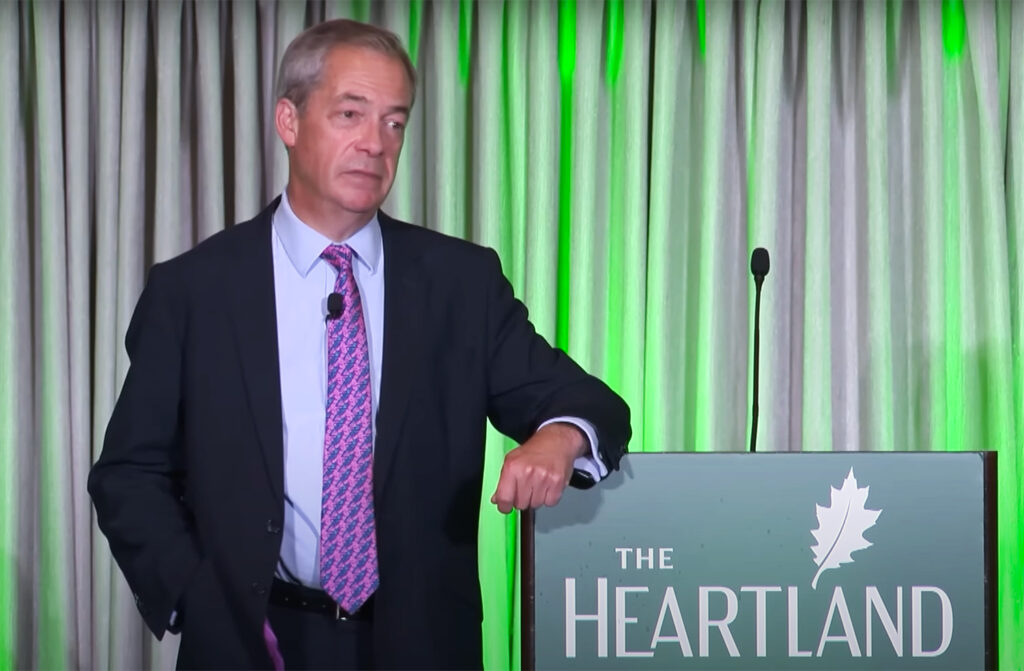The U.S. government was officially shut down yesterday, and those responsible for the shutdown are already singing its praises. Among other things, they were finally able to achieve their years-long goal of shutting down the Environmental Protection Agency (EPA), even if only temporarily.
Republican Congresswoman Marsha Blackburn from Tennessee led the victory lap, tweeting out “There is some good news out of the shutdown, the EPA can’t issue new regulations.” Blackburn has received more than $282,000 from the oil and gas industry in campaign contributions during her years in Congress, according to the Center for Responsive Politics.
The crusade to destroy the EPA is one that the Republican Party has been carrying out for several years, as they erroneously view the standards set forth by the agency as “burdensome” and as “job killers.” Had they bothered to look beyond their own sound bites, they would have learned that the regulations put forth by the agency actually create jobs rather than destroy them.
Sadly, there is some truth to Blackburn’s comment, and it isn’t anything that American citizens should be celebrating. While the agency isn’t entirely crippled at the moment, until the government resumes its operations it will not be able to do all of the jobs necessary to protect Americans.
While the government remains shut down, less than 1,100 of the EPA’s 16,205 employees will remain on the job, which means that less than 7% of the agency will be functioning as normal. While officials claim that law enforcement, public health, and property protection employees will still be working, if the agency runs out of contingency money, those employees too could soon be off the clock.
However, according to The Washington Post, the agency will not be monitoring air and water quality during the shut down, a note that runs contradictory to the claim that public health and safety employees will still be working. This could easily give industry a free pass to surpass acceptable pollution levels when they know they won’t have anyone looking over their shoulder.
The most obvious immediate affect of the government shutdown was the closure of all national parks and zoos, a move that will severely hurt tourism and state and local economies if the government shut down lasts for a longer period of time. ThinkProgress reports that the National Park Service calculates that shuttering the national parks will cost local communities $76 million per day in lost revenue from lodging, recreational gear and other services dependent on a steady flow of tourism. Meanwhile, the oil and gas industry continues to have access to a dozen national parks for drilling and fracking on existing permits.
As Kate Sheppard points out at The Huffington Post, federal employees in charge of drafting laws relating to environmental protections will be sent packing, and clean up efforts at Superfund sites will almost completely grind to a halt.
This is the second major hit to the environment by the federal government this year, as the sequester cuts that took effect March 1st significantly impacted the agency’s budget. As I reported in March:
Environmental programs within the United States – everything from wildlife refuges to clean air and water programs – have already been grossly underfunded for years, and the sequester cuts are only going to make things much, much worse for our environment.
One program that was gearing up to be cut less than 24 hours after sequester took effect was the Bureau of Labor Statistics green jobs survey. This program allowed the administration to track the creation and tally of jobs within the clean energy and other “green” sectors, a program that many Republicans in Washington had wanted to cut from day one.
Energy Secretary Steven Chu said that the mandatory cuts are going to severely hurt investment and research into lightweight automobile construction and fuel cell technology, investments that were aimed at helping increase automobile fuel efficiency and reducing our gasoline consumption.
Frances Beineke, president of the NRDC, said that the sequester cuts will force the Environmental Protection Agency (EPA) to cut back on their air quality monitoring across the United States, as well as their programs to monitor drinking water. This puts all Americans at risk of breathing polluted air and drinking contaminated water.
Politicians like Marsha Blackburn might be popping champagne corks over the shut down of the EPA, but those of us who will be forced to live within the impact zone of a lapse in polluter accountability will be suffering the consequences.
Subscribe to our newsletter
Stay up to date with DeSmog news and alerts







